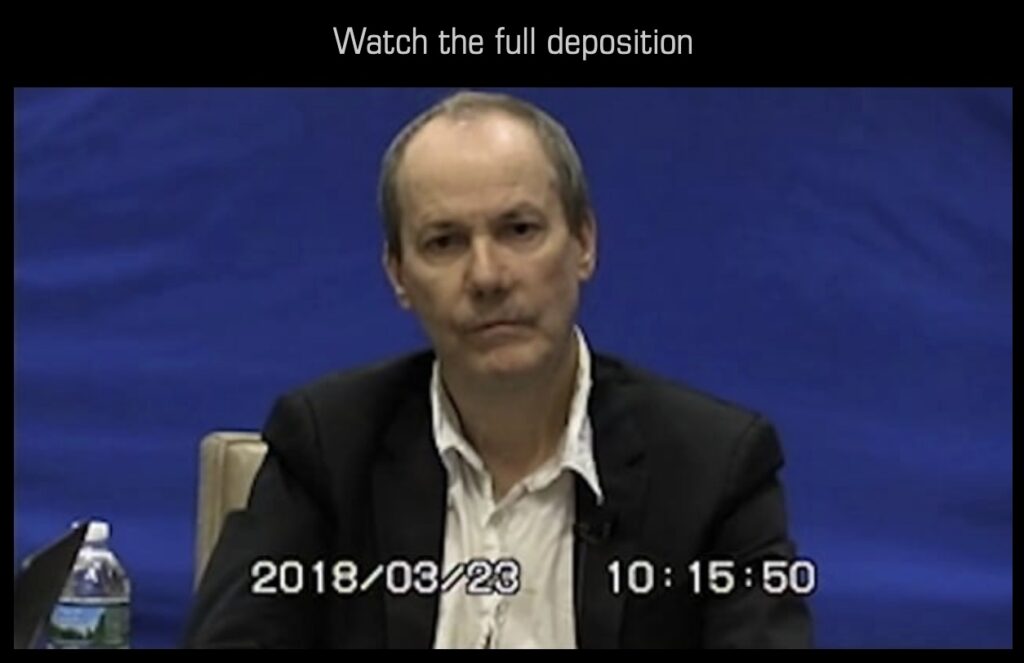
Since Richard Prince’s video recording of his 2018 deposition in the McNatt & Graham lawsuits briefly surfaced online in 2023 until it was screened at Sant’Andrea de Scaphis as a work, Deposition (2025), it feels like the number of people who have watched the full 7-hour thing would not have filled the smallest theater at the Quad Cinema.
And yet, it is, over and over again, described by those few who have seen it all as one of the major artworks of our time. Prince himself, in a conversation with Rick Rubin, talked about it as wanting to make a work like Andy Warhol’s Empire. Benjamin Godsill could not stop raving about it on Nota Bene. And now Andrew Russeth has delivered one of the most incisive, close readings of Prince’s Deposition I’ve seen anywhere.
If you’re not going to watch it—again, it’s almost seven hours of Richard Prince talking extremely slowly in an adversarial conversation with offscreen lawyers—Russeth’s take and highlights will get you the gist. And the importance.
For me the standout of this second deposition is the extent Prince will go to to maintain an artistic process of freedom and experimentation, almost five decades into his practice. True, it may be the kind of freedom only available to someone making $45 million/year—the tens of thousands of billable dollars per hour represented by a conference room full of the most expensive lawyers in America doesn’t begin to account for the cost incurred to realize this one video work.
But if you’re an artist with the means to re-create the circumstances of your most surprising, innovative moments of creation, wouldn’t you do it? Shouldn’t you?
